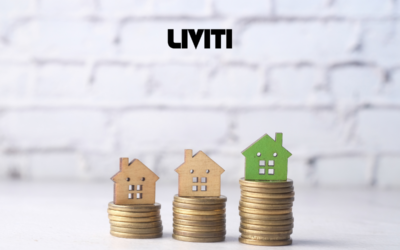Financial freedom is a goal many aspire to. It represents a state where one’s passive income covers all living expenses.
But how can you achieve this coveted state?
One promising avenue is through investing in off-market properties. These are properties not publicly advertised or listed on the mainstream real estate market.
Whether you’re a seasoned investor or a beginner, this guide will provide valuable insights. It will delve into the Australian property market, focusing on off-market properties as hidden gems.
We will also discuss the concept of passive income, the role of investment properties, and how to become financially free.
So, let’s embark on this journey to financial independence through strategic property investment.
Understanding Off Market Properties

Off-market properties, as the name suggests, are properties not publicly listed for sale. They are often referred to as ‘pocket listings’ or ‘silent sales’.
These properties are sold privately, without the usual fanfare of open houses or online listings.

The reasons for a property being off-market can vary. Some sellers prefer a discreet sale to maintain privacy. Others may be testing the market or looking for a quick sale without the hassle of a public listing.
Off-market properties can be a goldmine for savvy investors. They offer a chance to purchase properties before they hit the mainstream market.
Here are some key characteristics of off-market properties:
- Not publicly advertised or listed on real estate websites
- Sold directly by the owner or through a real estate agent’s network
- Often require a proactive approach to discover and negotiate
The Advantages of Off-Market Property Investment
Investing in off-market properties comes with several advantages.
Firstly, there’s less competition. Fewer buyers are aware of these properties, which can lead to a better purchase price.
Secondly, off-market properties can offer unique opportunities. These might include distressed sales, exclusive locations, or properties with potential for significant value-add.
Thirdly, the negotiation process can be more flexible. Without the pressure of a public listing, sellers may be more open to negotiation.
Lastly, off-market properties can provide early access to opportunities. Investors can secure properties before they’re available to the broader market.
How Off-Market Deals Work
Off-market deals operate differently from traditional property transactions.
Firstly, finding off-market properties requires a proactive approach. This might involve networking with real estate agents, attending property events, or directly contacting property owners.
Secondly, due diligence is crucial. Without a public listing, investors must conduct thorough research to ensure the property is a sound investment.
Lastly, negotiation plays a key role. With less competition, investors have more room to negotiate on price and terms.
In conclusion, off-market deals can offer unique opportunities for investors.
The Path to Financial Freedom Through Real Estate
Real estate investment, particularly off-market properties, can be a powerful vehicle towards financial freedom.
Financial freedom is the state of having sufficient personal wealth to live without having to work actively for basic necessities.
In the context of real estate, this means generating enough income from your properties to cover your living expenses.
Here are some key steps towards achieving financial freedom through real estate:
- Building a diverse property portfolio
- Generating positive cash flow from rental income
- Leveraging equity to expand your portfolio
- Minimizing debt and managing risk effectively
Defining Financial Freedom in Property Investment
Financial freedom in property investment is not just about accumulating wealth. It’s about generating consistent, passive income that can sustain your lifestyle.
This means your investment properties are generating enough rental income to cover your living expenses.
In essence, financial freedom is reached when your passive income exceeds your active income.
Passive Income and Positive Cash Flow
Passive income is income that requires little to no effort to earn and maintain. In property investment, this typically comes from rental income.
Positive cash flow occurs when the income from a property exceeds the expenses associated with owning and managing it.
Generating positive cash flow is crucial for achieving financial freedom. It provides a steady stream of income that can be used to cover living expenses, reinvest in more properties, or save for future financial goals.
However, achieving positive cash flow requires strategic planning and careful property selection. It’s important to consider factors like rental yield, property location, market trends, and property management costs.
In conclusion, passive income and positive cash flow are key components of financial freedom in property investment. They provide a steady income stream and the potential for wealth accumulation over time.
Investment Strategies for Off-Market Properties
Investing in off-market properties requires a strategic approach.
Understanding the market, identifying potential deals, and negotiating effectively are all crucial skills.
Here are some strategies to consider:
- Networking: Build relationships with real estate agents, brokers, and other investors can lead to exclusive off-market deals.
- Direct outreach: Contact property owners directly can uncover potential deals that aren’t listed on the market.
- Online platforms: Visit websites and online platforms to gain access to off-market listings and potential investment opportunities.
Building Your Property Portfolio
Building a diverse property portfolio is a key step towards financial freedom.
This involves investing in a variety of properties, including residential, commercial, and industrial real estate.
Diversification can help mitigate risk and provide multiple streams of income.
However, it’s important to balance diversification with careful property selection. Investing in too many properties too quickly can lead to financial strain and management challenges.
Financing Your Investments: Loans and SMSFs
Financing is a crucial aspect of property investment.
Investment property loans are a common financing option. These loans are specifically designed for real estate investments and often offer competitive interest rates.
However, it’s important to understand the terms and conditions of these loans, as they can significantly impact your cash flow and overall return on investment.
Another financing option is a Self-Managed Super Fund (SMSF). This allows you to use your superannuation funds to invest in property.
While this can be a powerful investment strategy, it’s important to understand the rules and regulations associated with SMSFs. Mismanagement can lead to significant penalties and potential loss of your superannuation funds.
In conclusion, understanding your financing options and choosing the right one for your situation is crucial for successful property investment.
Timing and Market Considerations
The timing of your investment in off-market properties can significantly impact your returns.
Understanding market cycles and trends is crucial to making informed investment decisions.
Investing during a buyer’s market, when property prices are low, can lead to higher returns in the long run.
How Long Should You Invest?
The length of your investment depends on your financial goals and the performance of your properties.
An investor should plan to hold a property investment for at least eight to ten years to maximise returns. This timeframe allows for a gradual increase in property value and provides a buffer against market volatility.
However, the exact duration can vary based on individual goals, market conditions, and economic factors. Patience and a long-term perspective are essential, as property values tend to appreciate over time despite short-term fluctuations.
However, some investors may choose to sell their properties sooner if market conditions are favourable.
Ultimately, your decision should be based on your financial objectives, risk tolerance, and market conditions.
Market Research and Timing Your Investments
Conducting thorough market research is crucial to timing your investments effectively.
This involves analyzing property values, rental yields, vacancy rates, and other key market indicators.
By understanding these factors, you can make informed decisions about when to buy and sell properties, maximising your returns and minimising risk.
Risks and How to Mitigate Them
Investing in off-market properties, like any investment, comes with its share of risks.
One of the main risks is the potential for property devaluation. This can occur due to changes in the local real estate market or broader economic factors.
Another risk is the possibility of property damage or unexpected maintenance costs. These can eat into your returns and may require additional investment.
To mitigate these risks, it’s important to conduct thorough due diligence, diversify your property portfolio, and have a solid risk management strategy in place.
Due Diligence and the Importance of Research
Due diligence is a critical part of investing in off-market properties.
This involves researching the property’s condition, location, and potential for growth. It also includes understanding the local real estate market and any relevant laws or regulations.
By conducting thorough due diligence, you can make informed investment decisions, minimise risk, and increase your chances of achieving financial freedom through property investment.
Read more: Everything You Should Know About Buying Off The Plan
Conclusion: Achieving Financial Independence
Investing in off-market properties can be a powerful strategy for achieving financial independence. However, it’s not a quick fix or a guaranteed path to wealth.
It requires careful planning, diligent research, and a long-term perspective. It also requires patience, as the benefits of property investment often take time to materialise.
However, with the right approach and mindset, off-market properties can provide a steady stream of passive income and contribute significantly to your financial freedom.
Setting Realistic Goals and Expectations
When investing in off-market properties, it’s important to set realistic goals and expectations.
Remember, property investment is a long-term strategy. It’s unlikely to make you a millionaire overnight, but it can provide a steady income and long-term financial security.
Next Steps Towards Financial Freedom
If you’re ready to start your journey towards financial freedom through off-market property investment, the next step is to start researching and planning.
Consider seeking advice from a property investment advisor or financial planner. They can help you develop a strategy that aligns with your financial goals and risk tolerance.






